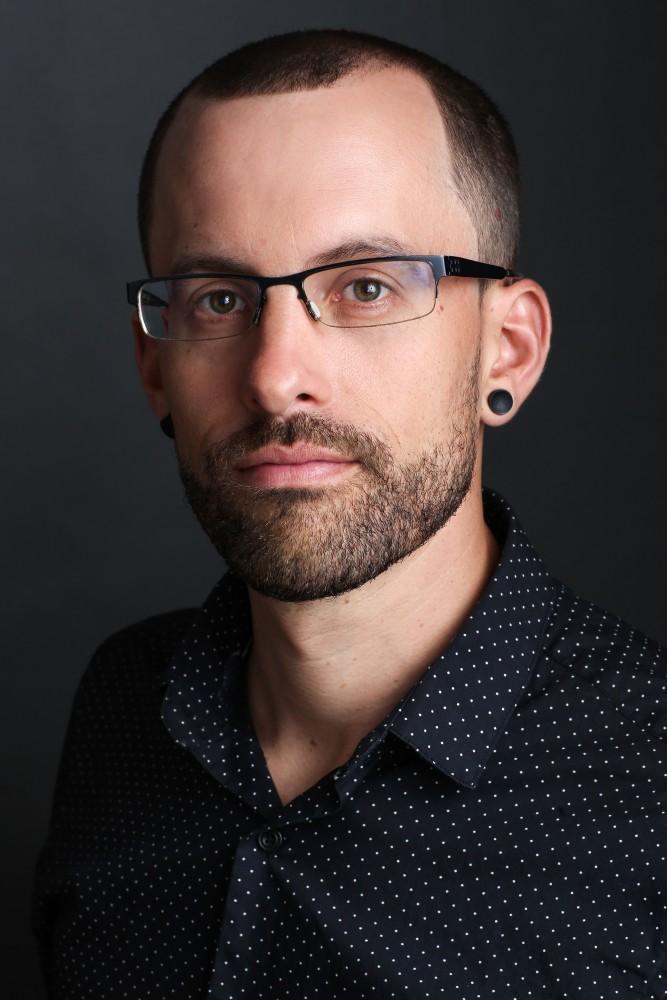Shane Bauer and David Maraniss are two of the presenting authors coming to the Tucson Festival of Books on March 2-3.
Bauer is an award-winning author whose most recent book, “American Prison: A Reporter’s Undercover Journey into the Business of Punishment,” tells the story of his time working undercover as a prison guard.
Maraniss is a critically acclaimed author and associate editor at The Washington Post. His reporting has earned him two Pulitzer Prizes.
RELATED: Bringing words to life through UA Prose series
Both Bauer and Maraniss will be at two events for the Festival of Books. The Daily Wildcat spoke with both authors to learn more about the effect writing has had on their lives and the power that can come from books.
Daily Wildcat: What first inspired you to become a writer?
Shane Bauer: Well, I read a lot as a kid. I was from a family that wasn’t a huge reading family. No one from my family had gone to college, for example. I was from a poor town in Minnesota. But I did read a lot, and I think that is also partially what kind of inspired me to travel and leave. Most of my family never left Minnesota. When I was about 19, I traveled to the Middle East for the first time and was interested in photography and was taking pictures a lot and kind of drifted into writing as a way to describe what I was seeing.
David Maraniss: Well I grew up in a family of writers. My father was a newspaper man, my mother was a book editor, my grandfather was a printer – and I was too stupid to do anything else.
DW: Would you say that writing has changed your life?
SB: Yeah, absolutely. I spend a huge part of my life writing now. It affects how I see the world … I’m a reporter, so I do a lot of things in a way that’s geared toward writing about it. I think about writing while I’m seeing things, how I’m gonna write about it, how I’m gonna construct scenes.
DM: In every possible way. Yes, I mean I consider my non-fiction writing like a permanent graduate school, so I’m always learning something new, and it’s allowed me to meet thousands of interesting people and travel around the world.

DW: Do you think your writing can make a difference for its readers?
SB: I hope so. I mean, I think certainly the things I write about are generally things that not a lot of people know about, so at the very least it’s educational. I also, with a lot of things I write, hope that it will make some kind of change. The book I’m going to talk about at the festival is about for-profit prisons and kind of exposing what I saw. I hope to impact our use of these kinds of prisons.
DM: I know it has. I mean, I’ve heard from a lot of people that what I’ve written and my search for the truth has made a difference in peoples’ lives.
DW: Why are books important to you?
SB: Other than direct experience, I don’t know if there’s any other means of being able to experience something in a visceral way and having depth of knowledge that we can get from books. I mean, we can’t get even, you know, watching films; it’s just nowhere near as deep as we can get from reading books and transporting ourselves to these other situations.
DM: Well, I think that one of the fundamental aspects of life is to understand who we are through the telling of stories. There’s no better way to do that than through books.
DW: What pushes you to keep writing?
SB: I guess I keep writing because I think it’s what I’m best at, honestly. I think it’s a skill that I’m constantly honing. I enjoy it. I enjoy reading, and I think that for me it’s the best way that I can make an impact in the world.
DM: Well, the wonderful thing about writing is that you never have to stop. You know, a lot of jobs you retire, or your legs go or something, but as a writer, I can do that for my whole life, and I’m constantly learning something new.
RELATED: Q&A: Professor discusses the impact of xenophobia on international student enrollment
DW: What is the power of a book?
SB: It’s the ability to transport us. For me, in writing a book, it’s trying to transport people usually to places where there’s a major injustice and just put them in that place so they can really see it and feel it and understand it in a way they can’t otherwise.
DM: The power of the book is to illuminate the world for people in ways that they haven’t seen before.
Follow Quincy Sinek on Twitter









